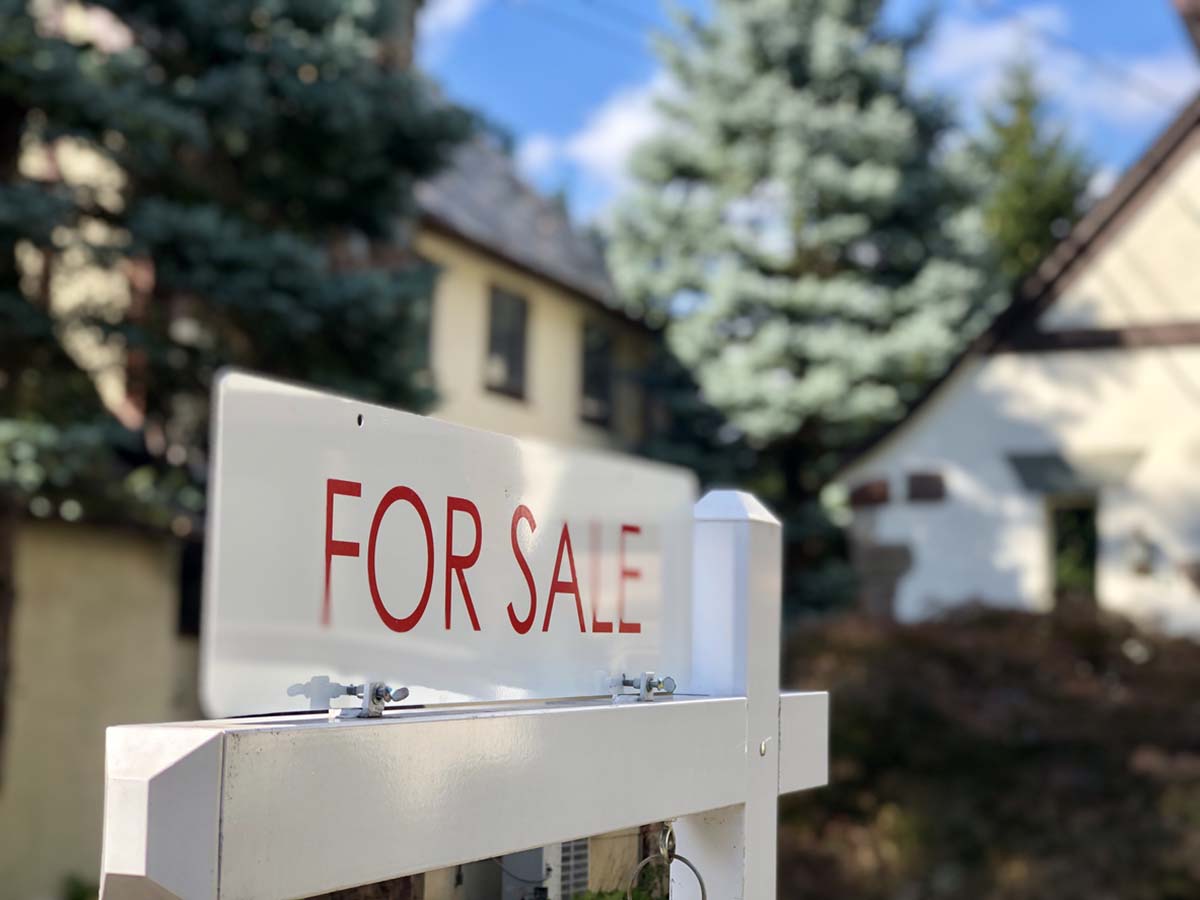T
he Hamptons real estate market in 2024 was a tale of two stories. On one hand, mortgage rates remained stubbornly high, failing to deliver the relief that homebuyers had been hoping for. Yet, despite this, home prices on the South Fork continued to rise, fueled by a persistent shortage of inventory.
A group of Hamptons real estate professionals gathered at the East End Roundtable to share their insights and predictions for 2025. Simon Harrison noted that the election year's transaction velocity was predictably off pace, but he remained hopeful that 2025 would bring improvement. Judi Desiderio attributed last year's market dynamics to a complex interplay of factors, including the contentious election, geopolitical tensions, and interest rates.
Michael Petersohn expressed surprise at the lack of inventory, given the correction in supply chain issues and the reversion of prices for lumber, steel, and energy to pre-COVID levels. Angela Boyer-Stump reported that despite home sales being down across the country, she ended the year on par with her 2023 performance, thanks to savvy clients who recognized opportunities amidst uncertainty.
Kalen Raynor highlighted his team's exceptional performance in securing high selling prices for sellers and navigating the evolving real estate landscape. Randi Ball noted that inventory started to trickle onto the market, leading to quick sales if priced correctly. Martha Gundersen observed that 2024 was a more normal year, with buyers balancing affordability with high interest rates.
Barry McGovern pointed out that price sensitivity increased in 2024, with buyers becoming more particular about value. He also noted that turnkey, well-located properties still commanded strong numbers, and all-cash buyers jumped back into the market as soon as they sensed stability. John Frangeskos reported a challenging year but ended up having one of his best years yet, with Q4 showing real strength.
Aimee Fitzpatrick Martin emphasized that no one has a crystal ball in this business, and 2024 was a tumultuous year due to various factors, including the presidential campaign, wars, and the NAR settlement. Despite these challenges, her sales and market share increased, and Saunders & Associates ended the year with more sale listings than any other brokerage firm in the Hamptons.
The group discussed how the mood shifted after the 2024 election. Simon Harrison noted that pent-up demand loosened, and the relief rally in equities helped both buyers and sellers. Judi Desiderio observed that the real estate market lit up after the election. Michael Petersohn reported a measure of shift, but some buyers remained concerned about tariffs.
Angela Boyer-Stump didn't see an immediate shift but felt busier as they wrapped up January and pulled into February. Kalen Raynor expressed optimism that the new administration would introduce policies to reduce interest rates. Randi Ball noted that sellers and buyers have more clarity on what to expect financially from the next few years, which is positive for the real estate market.
Martha Gundersen observed that before the election, buyers and sellers wanted to wait and see how it would affect the real estate market, but now there's a general sense of optimism. Barry McGovern agreed, noting that uncertainty leading up to the election made many buyers and sellers hit pause on making big decisions. John Frangeskos reported that activity picked up after the election, driven by stock market gains and anticipated Wall Street bonuses.
The group also discussed whether it would be a seller's market in 2025 or a buyer's market. Simon Harrison predicted a more balanced market than 2024 was. Judi Desiderio agreed that it would likely be more balanced than previous years. Michael Petersohn continued to see it as a sellers' market, citing low inventory levels.
Angela Boyer-Stump noted that so far, what they're seeing suggests it will continue to be a seller's market in 2025. Kalen Raynor believed the Hamptons would remain a strong seller's market throughout 2025. Randi Ball stated that until inventory greatly replenishes from COVID sales, it will continue to be a seller's market out east.
Martha Gundersen suggested that some homes may come back on the market at slightly reduced asking prices to make a deal, but inventory remains low, so it's still a seller's market for homes priced correctly. Barry McGovern noted that interest rates and inventory levels would determine whether 2025 is a more balanced market or favors sellers.
John Frangeskos reported that new construction continues to be a significant factor in the overall Hamptons market, with a rise in newly built homes but still low inventory. Aimee Fitzpatrick Martin observed that if January is any indication of what the 2025 market will be like, they're off to a great start for both buyers and sellers.
The group discussed how AI is helping to market and sell homes. Simon Harrison noted that AI picks up some joyless tasks but lacks character and integrity components. Judi Desiderio emphasized that while AI helps with marketing, it doesn't convince a seller to sell or a buyer to buy.
Michael Petersohn hadn't seen a change in the market structure due to AI yet. Angela Boyer-Stump uses AI every day and finds it helpful in making her life easier. Kalen Raynor believed AI represents the future and empowers agents to more effectively market and sell homes.
Randi Ball was not seeing much AI used in marketing and selling homes yet but plans to start dabbling at The Agency this year. Barry McGovern noted that AI is a support tool, helping with predicting market trends, optimizing digital ad targeting, and automating tasks like follow-ups and listing descriptions.
John Frangeskos reported that AI has become a tremendous tool to help market and sell homes, leveraging an internal platform called Corcoran Copilot. Aimee Fitzpatrick Martin observed that whether they like it or not, AI is here to stay and playing an increasing role in real estate.
The group also discussed the NAR settlement and how it's changed their business. Simon Harrison noted that he wasn't affected by the NAR settlement, as his local independent brokerage firm was already operating outside of the NAR's requirements.
Judi Desiderio reported that nearly 100% of her sellers recognize the value selling agents bring to the table and are offering buyer broker compensation in line with levels seen prior to the NAR settlement. Michael Petersohn noted that workflows have changed, but the new disclosures require some handholding.
Angela Boyer-Stump observed that AI is helping to market and sell homes, while Kalen Raynor emphasized that the NAR settlement has transformed the way agents conduct business, introducing greater transparency for consumers.
Randi Ball reported that the NAR settlement resulted in more paperwork to be signed and conversations clearing up confusion. Martha Gundersen noted that they always operated under strict professional guidelines and the new paperwork is not hard to navigate for an experienced broker.
Barry McGovern agreed that the NAR settlement has made conversations about commissions more transparent, but it hasn't disrupted the market. John Frangeskos reported that he's proud of providing exceptional service to all his clients with excellent communication throughout the transaction and beyond.
Aimee Fitzpatrick Martin observed that some buyers are still unaware of the NAR settlement lawsuit and how it affects real estate compensation practices, providing her with an opportunity to educate them about the changes.
The group discussed whether the rising cost of homeowners insurance is making it difficult to sell certain homes. Simon Harrison noted that property insurance is being slotted into umbrellas and portfolios, and the occasional "self-insured" makes sense to some.
Judi Desiderio hadn't seen an impact yet but was cautious about what might happen this year. Michael Petersohn reported that selling homes isn't affected by rising costs of homeowners insurance, but he had a conversation with an owner whose rates doubled over the last two years.
Angela Boyer-Stump noted that factors like the age of a roof or FEMA regulations can make it harder to find an insurer. Kalen Raynor emphasized that the cost of insurance is an important consideration for all buyers before making an offer on a property.
Randi Ball reported that homeowners insurance, especially flood insurance, is getting more expensive and complicated but local insurance companies have been helpful in finding carriers. Martha Gundersen agreed that the cost of insurance has gone up, but they're fortunate to be in a safer area than others.
Barry McGovern noted that insurance premiums, particularly for waterfront and older homes, have surged, and it's something both buyers and sellers are paying closer attention to. John Frangeskos reported that while some insurance companies have exited the Hamptons market, there are still plenty of insurers to select from when shopping for home insurance.
Aimee Fitzpatrick Martin observed that she hasn't seen any indication of insurance affecting a buyer's decision to consider a particular home; buyers are more concerned about property taxes.













